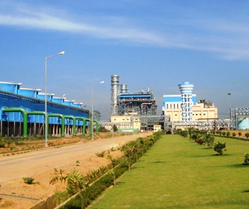

 OTPC believes in adopting sustainable business practices which benefit not only the shareholders but also the community and the local environment. In pursuit of adoption, OTPC has taken membership of Global Compact Network India (GCNI). GCNI is the Indian arm of United Nation Global Compact which is a leadership platform with a global dimension with an aim to conjoin private sector activities with civil society initiatives, and for the establishment of an inclusive corporate sustainability in the global economy.
OTPC believes in adopting sustainable business practices which benefit not only the shareholders but also the community and the local environment. In pursuit of adoption, OTPC has taken membership of Global Compact Network India (GCNI). GCNI is the Indian arm of United Nation Global Compact which is a leadership platform with a global dimension with an aim to conjoin private sector activities with civil society initiatives, and for the establishment of an inclusive corporate sustainability in the global economy.
OTPC being a joint venture organization is also supporting its promoters and investors in preparation of sustainability report under Global Reporting Initiative. OTPC is also committed towards providing support to nearby villagers in the field of health, education and livelihood under its Corporate Social Responsibility (CSR) program.
OTPC is also helping the environment by emitting lower levels of emissions. The NOx emission from the power plant is less than 25 ppm which is much lower than the prescribed limit. Online data of both chimneys is made available on the Central Pollution Control Board website for real time monitoring.
The OTPC plant is also registered under the Clean Development Mechanism scheme established as part of the Kyoto Protocol under United Nation Framework Convention to Climate Change.
The Project is supplying clean power to the national transmission grid wherein the present grid mix is relatively skewed towards power generation from coal-based plants. Consequently, implementation of the Project has lead to a reduction in carbon-dioxide emissions by feeding clean power into the grid.
The Project provides the following environmental benefits:
On account of the aforementioned benefits, the Project can claim emission reduction credits under the CDM scheme established as part of the Kyoto Protocol under United Nation Framework Convention to Climate Change (“UNFCCC”).
OTPC CDM project was successfully registered at the United Nations Framework Convention on Climate Change (UNFCCC) on 26th December 2012 and the company is now taking active steps towards first verification of its CDM project. The first monitoring period has been considered for generation period from 31st December 2013 to 31st March 2015.
As per the existing CERC Tariff Guidelines, 100% of the gross proceeds on account of CDM can be retained by the project company in the first year of operation. Subsequently, the share of power beneficiaries would be 10% in the second year which would be progressively increased by 10% every year till it reaches 50 %, whereafter the proceeds shall be shared in equal proportion, by the generating company and the beneficiaries.
 Validation Report - 2010-1136
Validation Report - 2010-1136 Project Design Document Form V-03
Project Design Document Form V-03